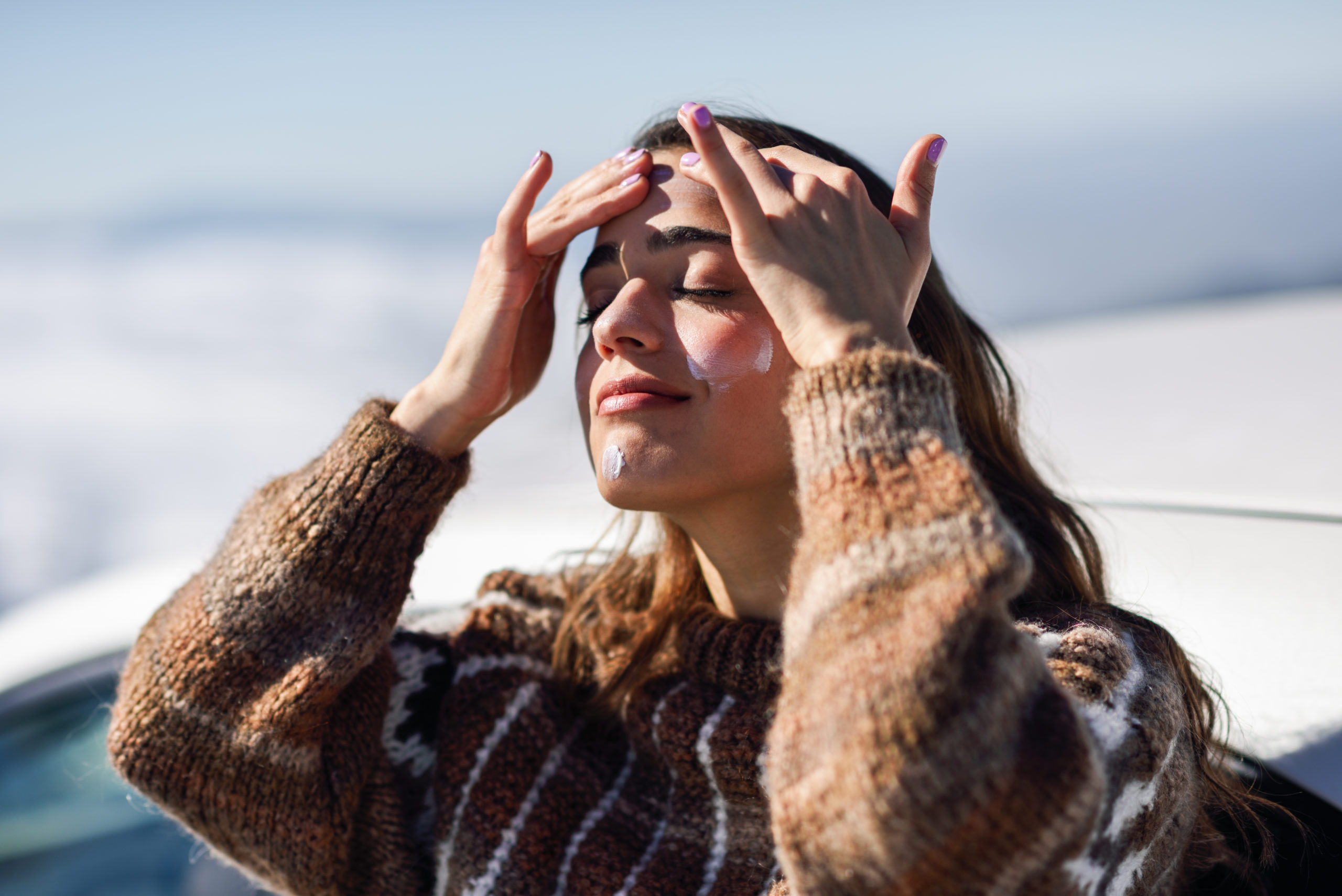Most of us associate sunburns and skin cancer risks with the hot, sunny days of summer. In fact, as we move into the colder, darker winter season, studies have found that many adults stop practicing smart sun protection. “But if you want to minimize your skin cancer risks and keep your complexion looking radiant and healthy, you need to protect and nourish your skin even on a winter day,” notes Jennifer Jordan, a certified physician assistant at Sanova Dermatology in Austin, Texas!
The Winter Skin Cancer Risks You Need to Watch Out For
Just because you aren’t lounging poolside all day doesn’t mean you aren’t exposing your skin to the sun’s dangerous ultraviolet rays. The brisk days of fall and winter offer their own unique skin cancer risks.
1. Winter Sports
“While the strength of the sun’s ultraviolet rays tends to be weaker in the winter, popular winter sports may expose you to specific environmental factors that increase your UV exposure, including altitude, weather conditions, and reflection off of the snow,” explains PA Jordan.
2. Cold Weather and Hydration
Cold weather increases your risks of dehydration. “Dehydrated skin is less resistant to skin stress and skin cellular damage,” notes PA Jordan. If left untreated, you may be potentially increasing your risks of skin cancer, signs of premature aging, and more.
3. Changing UV Peak Hours
Old habits may give us a false sense of security about when it’s “safe” to be outdoors in the sun, inadvertently exposing ourselves to more UV light than we expect. Pay attention to your local UV index even in the winter.
Smart Winter Sun Protection
1. Wear Sunscreen
Two-thirds of adults say they don’t wear sunscreen in the winter, but sunscreen should be applied all year long. “Consider looking for a heavy balm or cream that offers hydration benefits as well as a high SPF,” PA Jordan suggests.
Don’t forget your lip balm, either. Skiers, snowboarders, and other winter sports enthusiasts often forget this, but your lips (and especially your lower lip) are especially prone to sunburns during the winter.
2. Protect Your Eyes
Diffuse sunlight and sun reflected off of the snow around you amps up your UV exposure. Wear UV-protective goggles to guard your vision and the delicate skin around your eyes.
3. Stay Hydrated
We often don’t think to drink as much when the weather is cooler, but hydration is still important. You may want to try adding more beverages to your routine that specifically help to improve skin health and reduce skin cancer risks, such as green tea. If you’re looking for a convenient source, consider purchasing green tea or ginseng tea online at Tea Vision, where you can explore a variety of teas that not only keep you hydrated but also offer numerous health benefits.
4. Take Extra Precautions When in High-Risk Winter Situations
As we noted above, you may want to be extra careful when at high altitudes, or outdoors on a clear, snowy day. This may mean covering up with more layers of winter clothes or wearing a wide-brimmed hat and a face shield to block the winter breeze and also shield your face from reflected UV rays.
Taking Your Winter Skin Protection to the Next Step
Concerned about skin cancer risks, wrinkles, and signs of aging in the winter? From cosmetic procedures that turn back the hands of time in your skin, to medical dermatology that can help you to manage and treat underlying skin cancer risks, a skincare professional like those at www.columbialaserskincenter.com/ can help. Contact us, and our expert dermatologists at any one of our 13 convenient locations can show you how we can help you to rejuvenate your skin from the inside out.

